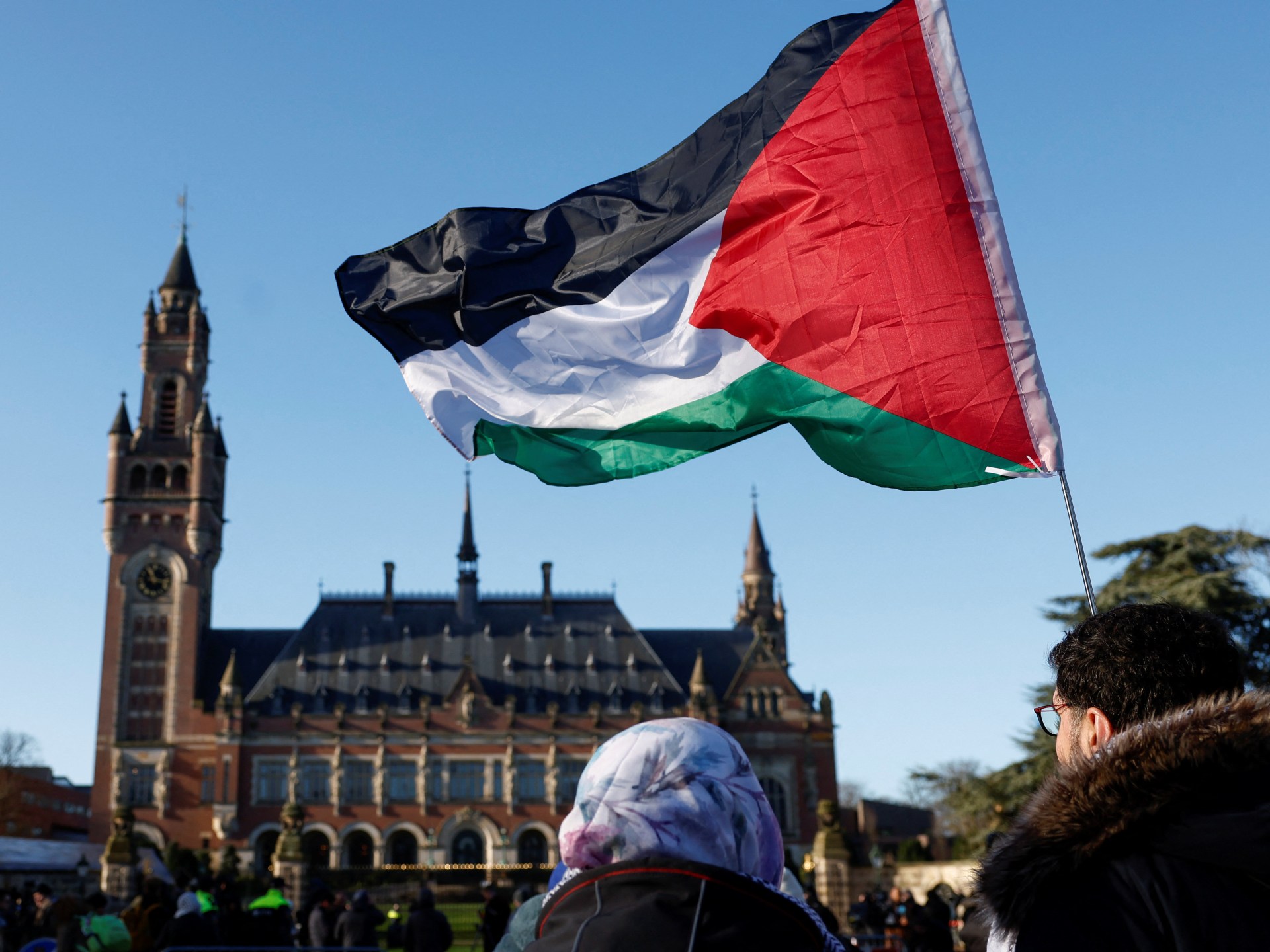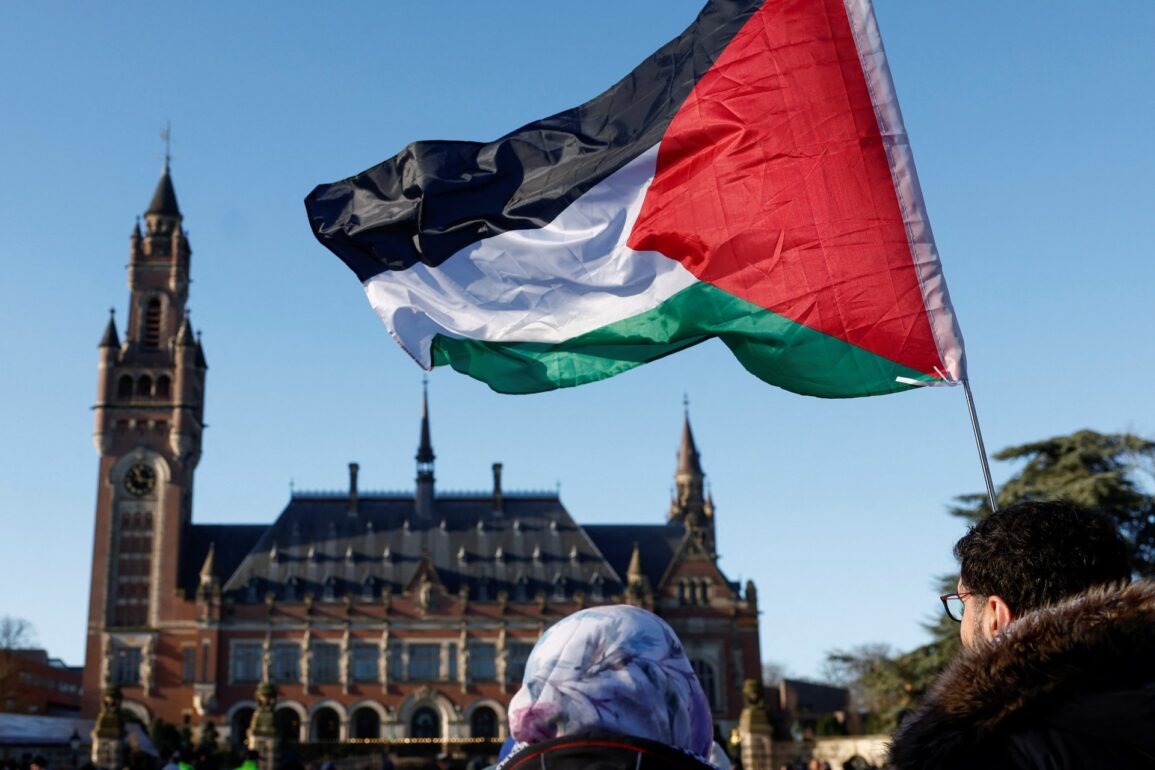
Now that we have heard the interim judgement the International Court of Justice (ICJ) delivered in South Africa’s genocide case against Israel, we can confidently say a new world order is in the making.
The World Court confirmed today that South Africa’s charge under the Genocide Convention that “Israel has engaged in, is engaging in and risks further engaging in genocidal acts against the Palestinian people in Gaza” is “plausible”. It has further ruled that Israel must “take all measures” to avoid acts of genocide in Gaza. The court has stopped short of calling for an immediate and permanent ceasefire, which has already been demanded by an absolute majority of world nations. Still, most of the “provisional measures” called for by the Republic of South Africa have been endorsed by the court. It is difficult to see how Israel can implement these measures and fulfil its obligations under the Genocide Convention, without agreeing to a ceasefire.
There is no indication, of course, that Israel has any intention of heeding the Court’s provisions. In fact, since the ICJ heard South Africa’s case two weeks ago, Israel has doubled down on its genocidal acts in Gaza.
In the past 24 hours alone, it carried out 21 mass killings, murdering 200 and injuring 370 civilians. So Israel’s message to the Court, and the world at large, is clear: It does not care for the opinion, demands or “measures” of any international institution – legal or political. It will do as it pleases.
All in all, more than 1 percent of the population of Gaza has been killed and another 2.2 percent has been injured in the past three months. Most of the enclave has been destroyed, and almost all of its more than two million residents have been displaced. The relentless siege, coupled with the deliberate targeting of hospitals, led to the collapse of the healthcare system. Medical services are all but non-existent and people are dying of famine and disease, including hepatitis A and Leishmania. Even the smallest of injuries can prove to be a death sentence, as it is extremely difficult to maintain hygiene and prevent infections. Hundreds of women had miscarriages and many others died in childbirth due to lack of medical care.
In this context, it is no surprise that the World Court has found it “plausible” that Israel may be committing a genocide in Gaza. But, given its lack of interest in complying with international law – and the unconditional support it enjoys from the West – there is little reason to expect it to alter its conduct due to the court’s damning interim ruling.
So why did South Africa take Israel to the ICJ, and why does today’s ruling really matter?
As affirmed by South Africa, “Israel’s genocidal acts” must be understood “within the broader context of Israel’s 75-year apartheid”. Israel has committed many violations of international law since 1948, including war crimes and crimes against humanity. Its apartheid regime and illegal occupation denied the most basic human rights of the Palestinians for nearly a century. It passed a racist “nation-state law” that states that “the right to exercise national self-determination” in Israel is “unique to the Jewish people”, establishes Hebrew as Israel’s official language, and establishes “Jewish settlement as a national value” and mandates that the state “will labor to encourage and promote its establishment and development.”
After ethnically cleansing most of historical Palestine of its indigenous population through massacres and theft in 1948, it went on to imprison the population of Gaza within the Strip, committing what brave Israeli historian Ilan Pappe defined in his latest book, The Biggest Prison on Earth: A History of Gaza and the Occupied Territories, as “ethnic cleansing by other means”. “[Palestinians in Gaza] are contained inside their own areas, but do not have to be counted in the overall national demographics since they cannot freely move, develop or expand, nor do they have any basic civil and human rights,” explained Pappe.
Since the moment of its very inception, Israel worked to eliminate the indigenous population of Palestine through ethnic cleansing, apartheid, ghettoisation and segregation. And now, it is committing the very first livestreamed and globally watched genocide in human history.
How could South Africa, a nation that itself experienced the worst of settler-colonialism, ethnic cleansing and racial segregation, a nation that has successfully destroyed a vicious apartheid regime and replaced it with a multi-racial, multicultural, progressive democracy remain silent in the face of Israel’s crimes?
It could not.
South Africans recognised that taking no action on Israel’s continuing genocide in Gaza would have meant no lesson had been learned from the Sharpeville and Soweto massacres, from everything they endured under settler-colonial rule, from years of apartheid.
They realised that now that Israel’s occupation and oppression reached their genocidal climax, the international community no longer has the luxury of waiting, issuing statements and hoping for the best. Every single minute of inaction brings more loss, more death and more despair to Palestinians.
So they took action – they took Israel to the highest court of the world, and accused it of committing the world’s most heinous crime: genocide.
Israel may not heed the court’s rulings and provisions, but South Africa’s historic stance will still have consequences. As stated by the Department of International Relations and Cooperation of South Africa after the ICJ’s interim decision: “Third States are now on notice of the existence of a serious risk of genocide against the Palestinian people in Gaza. They must, therefore, also act independently and immediately to prevent genocide by Israel and to ensure that they are not themselves in violation of the Genocide Convention, including by aiding or assisting in the commission of genocide. This necessarily imposes an obligation on all States to cease funding and facilitating Israel’s military actions, which are plausibly genocidal.”
With this case, South Africa has put not only Israel, but the entirety of the global justice system on trial. This case is a major turning point for humanity, because it marks the first time in history when a Global South country bravely crossed a red line drawn by the colonial West and demanded its favourite settler colony, Israel, be held to account for the crimes it has long been committing against an Indigenous people. Today, thanks to South Africa, the entire colonial West, and its centuries-long history of theft, dispossession, and injustice is on trial at the World Court.
Future generations will remember January 26, 2024, as the day on which the world has finally decided to hold a genocide state, and its powerful backers, accountable for repeated, longstanding violations of international law. Yes, a new world order is in the making.
The views expressed in this article are the author’s own and do not necessarily reflect Al Jazeera’s editorial stance.
This post was originally published on this site be sure to check out more of their content.









